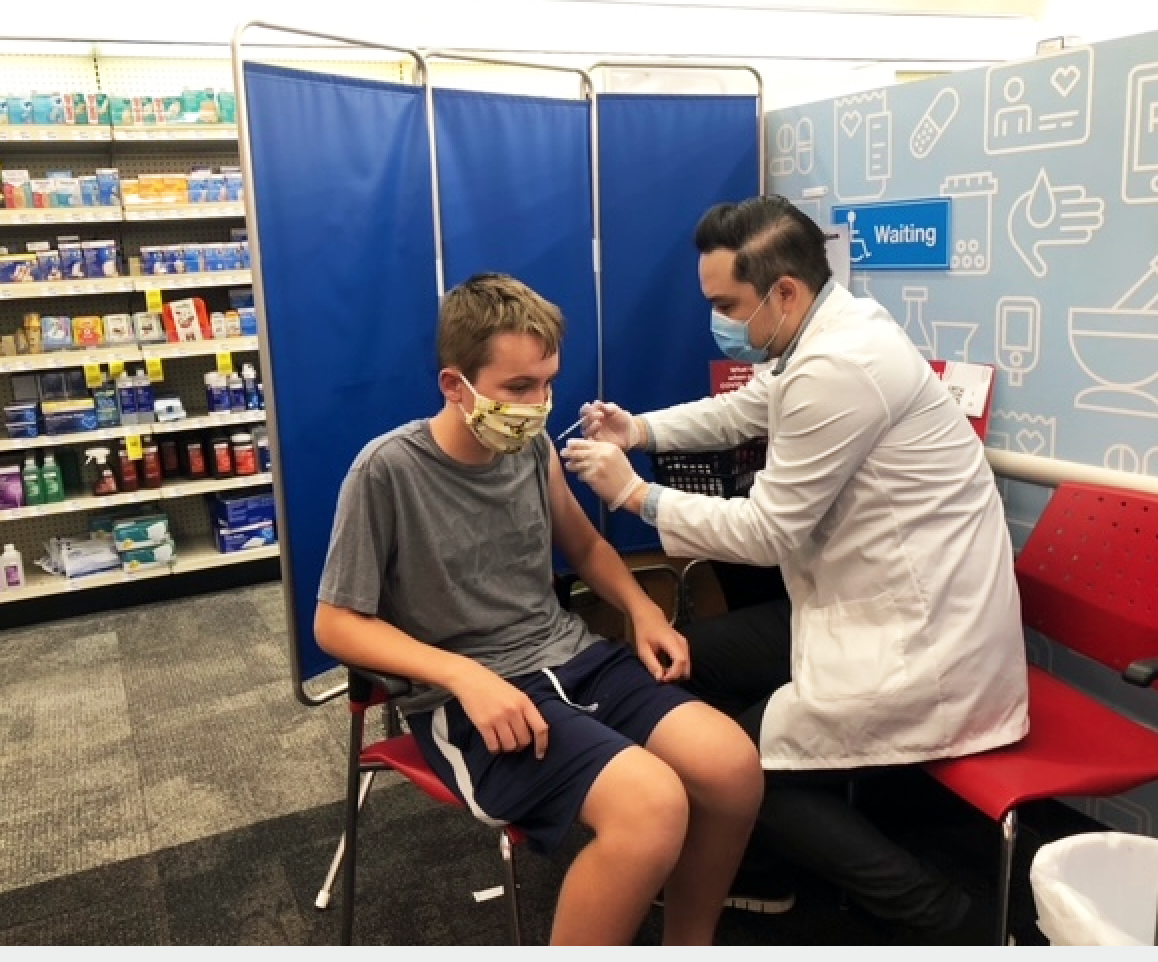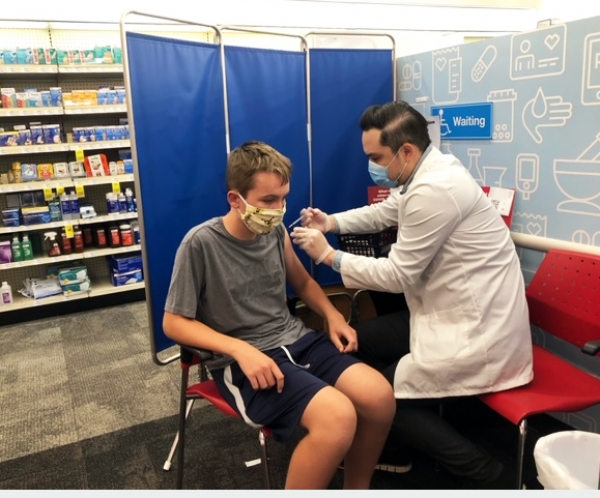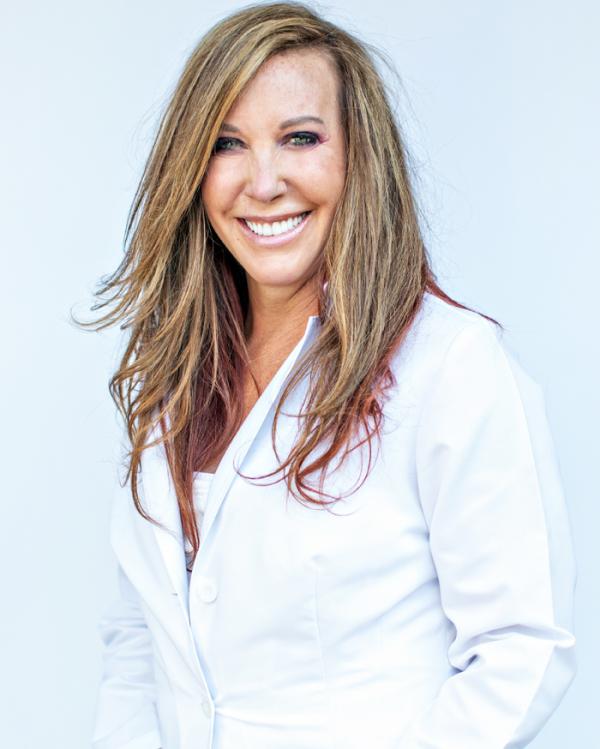KID REPORTERS’ NOTEBOOK
COVID-19 Vaccine Is Approved for Kids


Adam Chase, 14, gets his first dose of the Pfizer-BioNTech vaccine.
On May 12, the United States Food and Drug Administration (FDNA) approved the Pfizer-BioNTech coronavirus vaccine for use in kids ages 12 to 15. Kids around the country are now getting their first doses of the vaccine. I recently spoke with Christina Rahm, a scientific researcher, psychologist, and parent, about the rollout of the vaccine to a younger population. I also asked parents and students in my California neighborhood how they felt about kids getting vaccinated.
Although kids generally have a lower risk of serious illness from COVID-19, Rahm said, it’s still important for them to get vaccinated. “We know that children are not affected as much, and do not have as many side effects from this particular type of virus,” she said. “However, we do also understand that the virus is changing, and [the new variants] are getting stronger.”

“The virus is changing, and [the new variants] are getting stronger,” says scientific researcher Christina Rahm.
REQUIRE VACCINES FOR SCHOOL?
Making the vaccine available to kids is one thing, but getting kids to take the shot is another. “[Health officials] are relying heavily on the parents to make sure that they inform their kids,” Rahm said, “and then help them not be scared and to understand the vaccine when they go to get vaccinated.”
The parents I spoke to in my neighborhood were eager for their children to get the vaccine. “I’m looking forward to the kids being able to get vaccinated so we can get back to normalcy, said Rebecca Chi. “I think it’s going to be a good thing.”
Another parent, Annika Chase, agreed. “I cannot wait to get my kids vaccinated,” she said. “I think it’s the right thing to do. I believe in the science.”
There were differences of opinion, however, on whether or not vaccinations should be required for kids to attend school. “I do think schools should require it because of the close quarters, and to make it less of a Zoom type of year,” Chi said. “I think that they need to actually get back to normalcy, and I think that they need to have the kids vaccinated.”
Chase expressed doubt about whether vaccines were necessary. “I think that schools have done a really good job this year, at least our school, with the protocols [safety procedures] and keeping the kids safe and reinforcing how to have a successful on-campus experience,” she said. “There’s probably a balance in terms of finding the right protocols and ways to keep kids safe, but also not necessarily requiring vaccinations.”
Rahm sees both sides of the argument. “I think to say that you can’t go to school unless you have the vaccine is something that as a country, in the United States, we are prepared to do, because we would be keeping some kids out of school, and I think that that is a personal choice,” she said. “However, I do understand protecting our children and protecting the school systems, so I think what they’ll probably have to do is something like they do with the other vaccines.”
“OPENING UP AGAIN”
FDA approval for young people was a big step forward in ending the coronavirus pandemic. However, testing the vaccine for children under the age of 12 is ongoing, and no one is sure when it can be administered. Rahm said that the rollout would likely take place later in the summer or early fall.
Meanwhile, kids my age are looking forward to resuming favorite activities. Adam Chase, 14, said that he was excited for “everything opening up again—movie theaters, restaurants, fun places like that.” Addison Chi, also 14, said that she was excited to “hang out with my friends again.”
People may disagree on how to get there, but everyone is hoping for an end to the pandemic.
